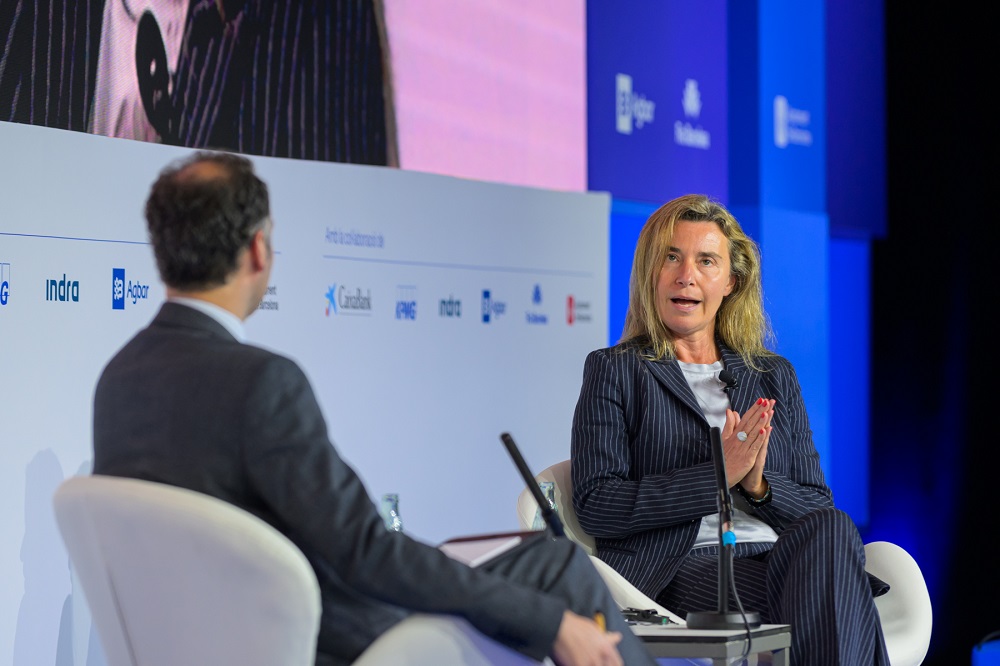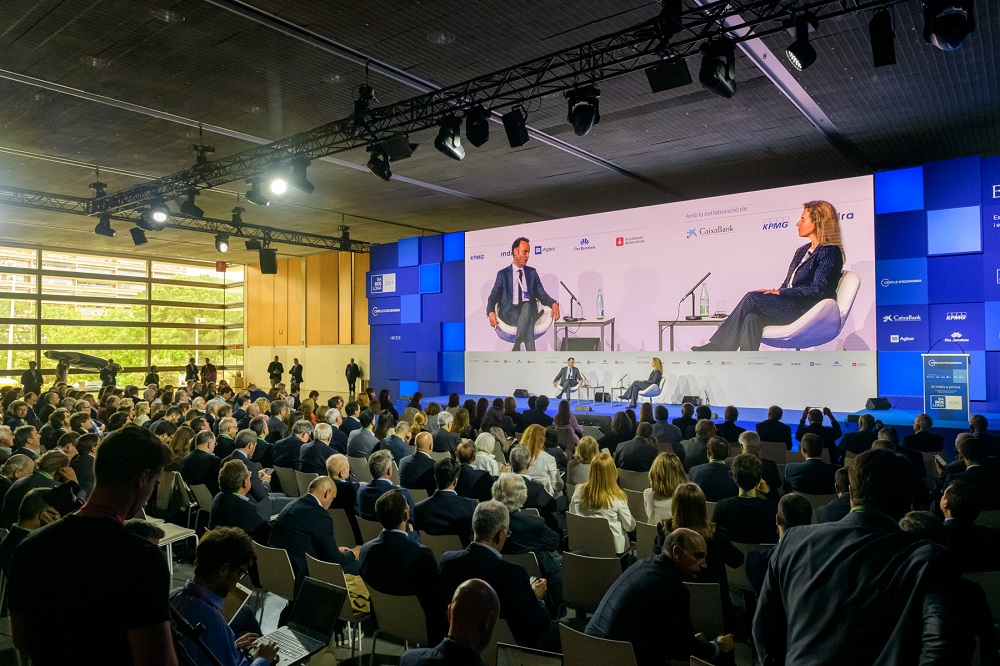Pol Morillas, member of the Board of Directors of Cercle d'Economia, noted that a "complex geopolitics" permeates the international debate and day-to-day life in areas such as business, public administrations and academia, among others, with a growing number of actors with their own interests in the main global issues and in the framework of complex dynamics that they have in pandemics. Armed conflicts and trade relations are the main signs of a global crisis.
In her speech, Federica Mogherini, rector of College of Europe, argued that the challenges in political matters, but also those linked to artificial intelligence and those of natural and climate origin – without forgetting issues related to the use of resources, demography or migration – are global in nature. Situated at this point, he regretted that "we do not have a functioning multilateral governance system" and that, in its absence, it is precisely through armed conflicts that these global dynamics and trends are managed.
For Mogherini, the European Union's representative for Foreign Affairs and Security Policy and former vice-president of the European Commission, the European Union (EU) "is the result of the understanding that the architecture of multilateral governance is more convenient than struggles or power politics".
In line with this reflection, she advocated for "building global alliances to find ways to give efficiency, effectiveness and representation" to an architecture that makes possible to face "complex problems". And she warned of the dangers posed by a "fragmentation of powers" which, in his opinion, leads to a "multipolar system without multilateralism".

The war in Europe: the UN, another of its victims
In Mogherini’s opinion, "Russian aggression against Ukraine is closely related to the dysfunctional elements of the multilateral system of governance in the world". He stressed that in this war "is the first time that a permanent member of the Security Council, also a nuclear power, invades a neighbouring country through a full-fledged military invasion." Consequently, "one of the greatest victims of Russian aggression is not only Ukraine, but the UN: it is an attack on the United Nations system, its credibility and its functionality," he said.
On the evolution of this armed conflict, Mogherini ventured that Vladimir Putin is watching the US elections in November: "I think Putin in particular clearly has an interest in a victory of Donald Trump," she said.
Struggle for hegemony over the Palestinian cause and "political will"
Asked by Morillas about the situation in the Middle East, Federica Mogherini reasoned that the war between Israel and Hamas "is not just a war for territory", since "there are still some actors in the region who question the very existence of Israel as a state and its right to security". Along with this, she highlighted the efforts to "try to win hegemony over the Palestinian cause" by Hezbollah (Lebanon) and Iran, in support of Hamas, as another of the new ingredients of the confrontation.
The speaker continued her response by warning that the management of the post-war conflict will be very complicated: "Who will govern Gaza when the war is over? What kind of Palestinian Authority is legitimate and, at the same time, capable from an operational point of view, to rebuild a completely devastated territory and society?" she asked. At the same time, she defended that the two-state solution is the only possible solution – here "there is nothing to invent, because there are not many alternatives", she said – but that to carry it out "the most important thing is political will". In Mogherini's eyes, the unknown is who will preside over the United States in 2025, because this factor will condition the situation in the Middle East.

Elections in the United States: Biden repeats or Trump returns?
The former vice president of the European Commission indicated that the November presidential elections in the United States will be "very controversial, very polarizing, even divisive." She admitted having the impression that "if Donald Trump comes back as president, this second term will be entirely different from the first and he will cross the boundaries that he probably faced in his first term." Mogherini speculated on the possible effects of a new Trump presidency on issues such as the integrity of Ukraine, the configuration or the very survival of NATO and the degree of polarization that could be experienced internally in the United States: "I would not be surprised by things that go far beyond our imagination," she verbalized.
Her recipe for Europe is clear: "We have to look for alliances and look for partners in specific areas, all from a creative approach". But also, "to further develop our strategic autonomy, as we have already done over the last decade".
Relations with China: bilaterality rather than a triangle with the United States
In response to Pol Morillas' interest in the European Union's (EU) relations with China, Mogherini said that the current scheme is based on the framework defined in 2019, which in her opinion remains "valid". It considers China a "strategic partner" in some fields (for example, in the fight against climate change), a "competitor" in other areas (mainly economic) and a "systemic rival" (in matters related to the political system and democracy, as well as human rights). Be that as it may, she prioritised maintaining a "bilateral scheme" in relations with China because, in his opinion, "relations between the EU, the United States and China are and will be different in the context of current and future challenges".